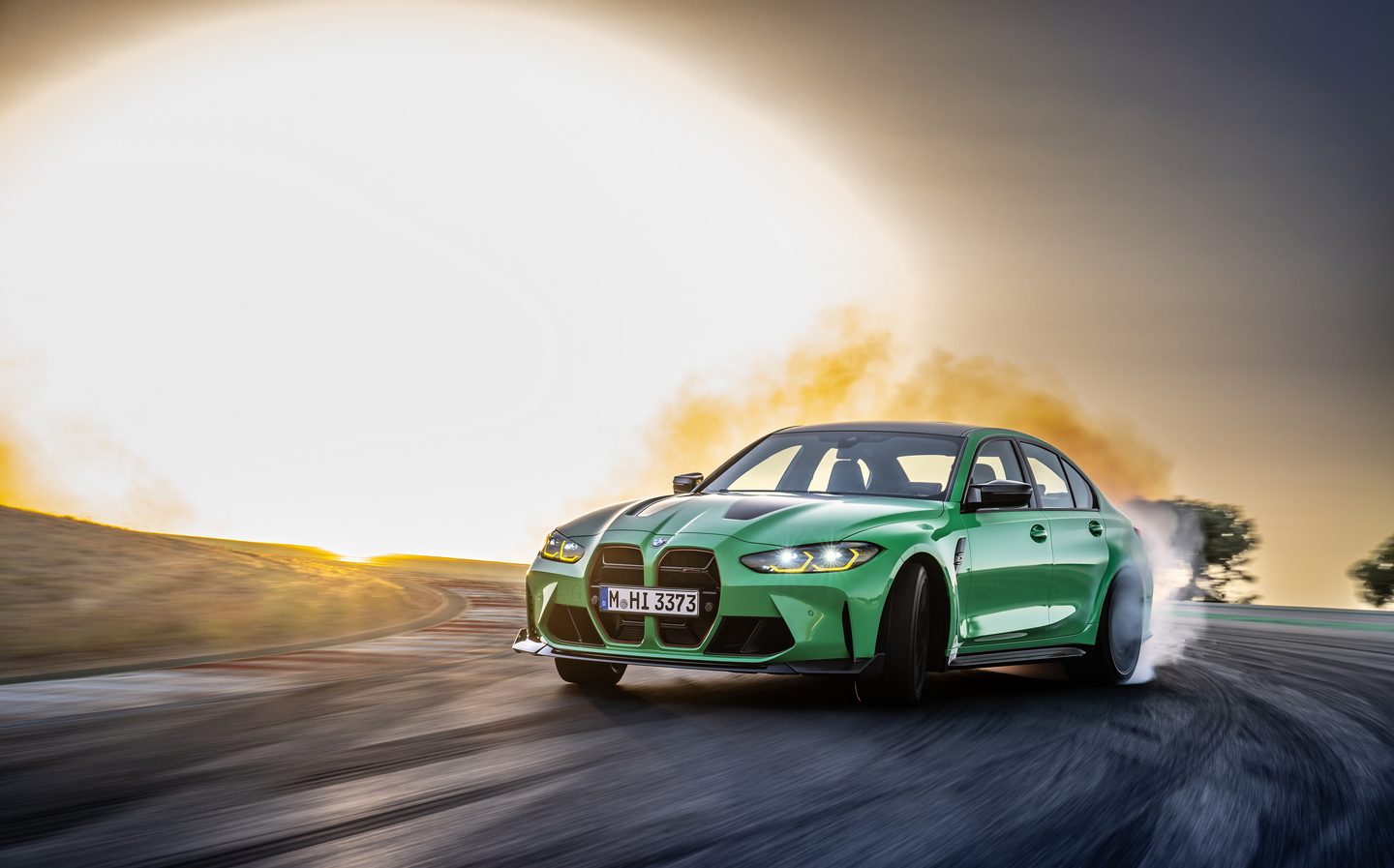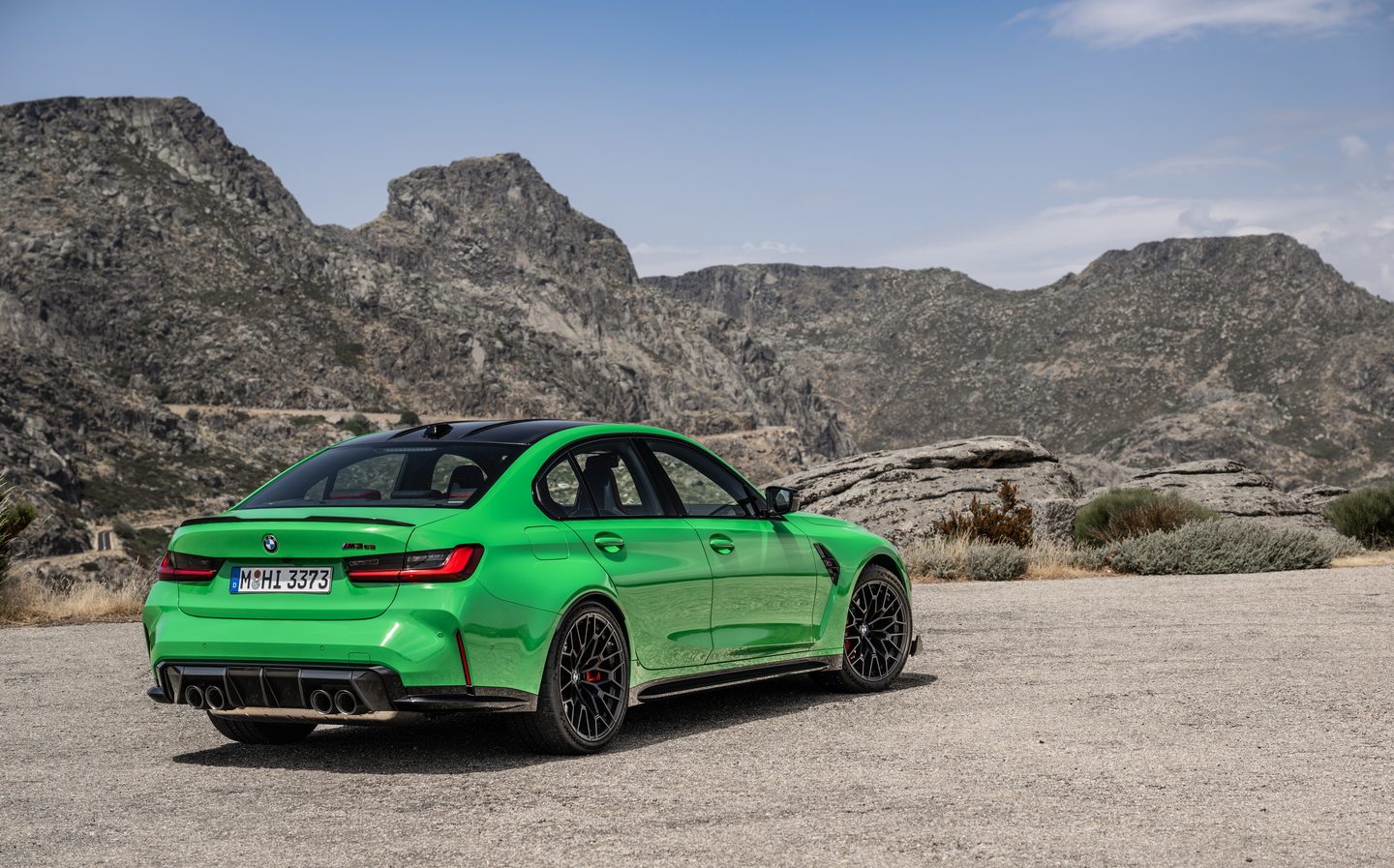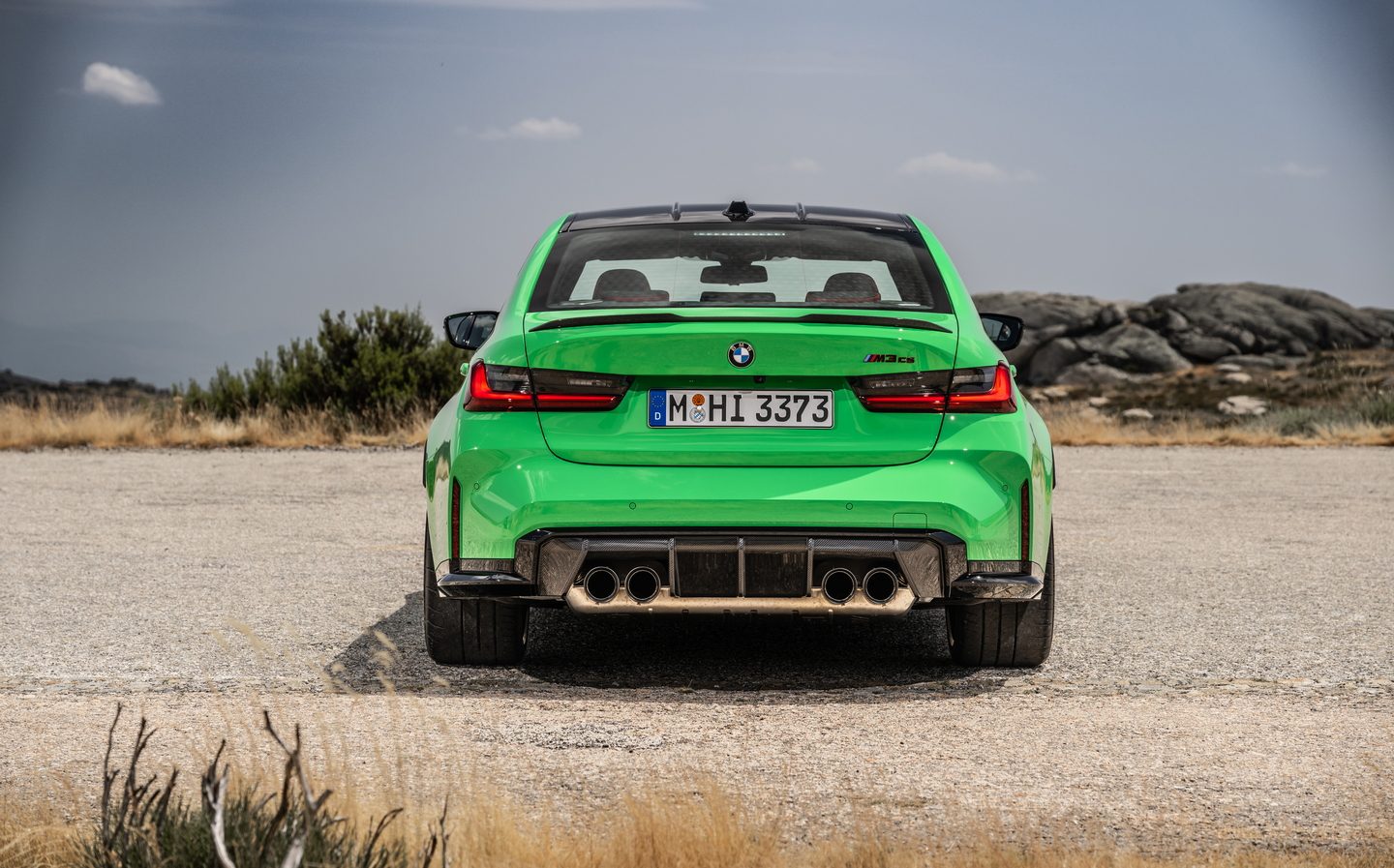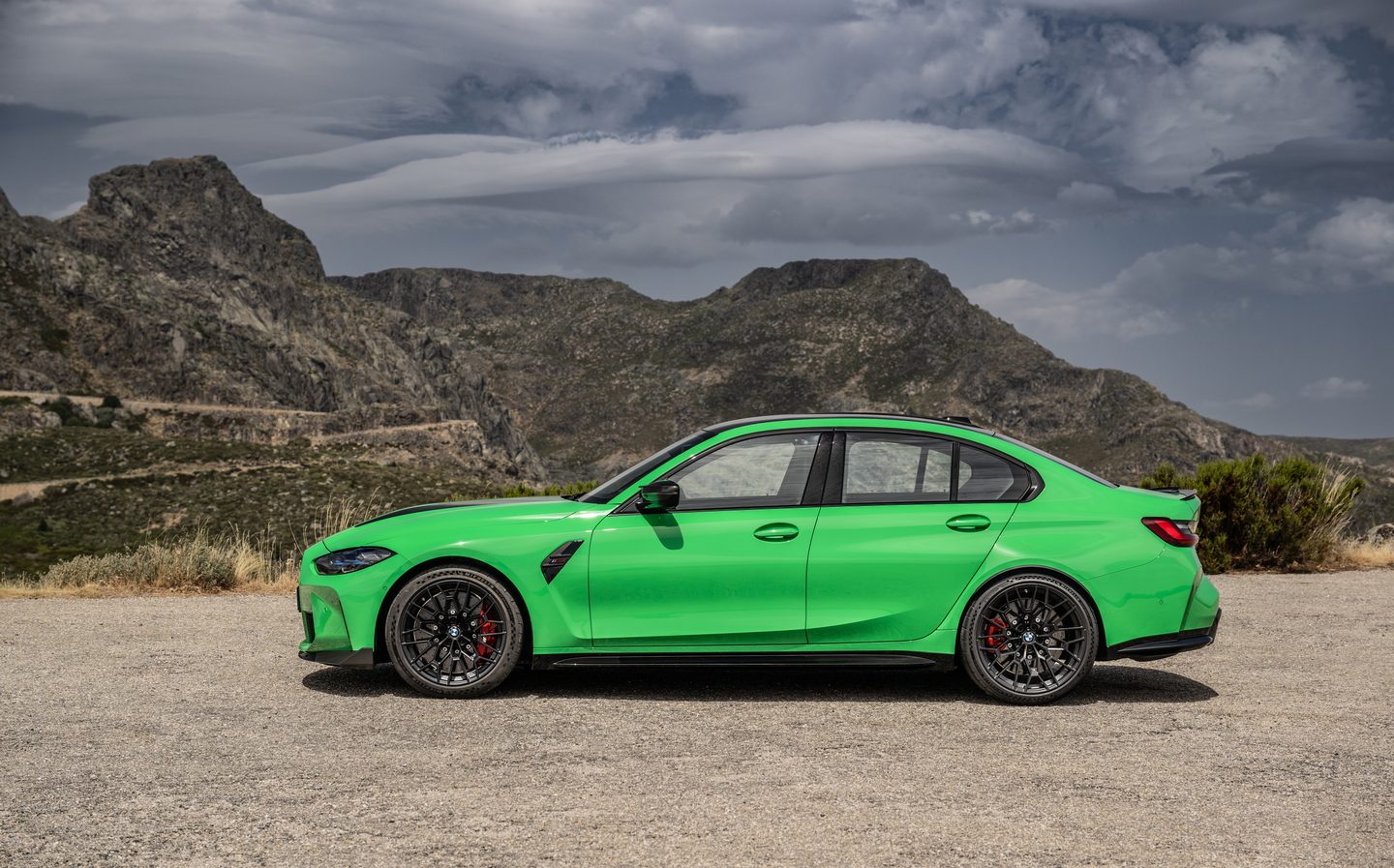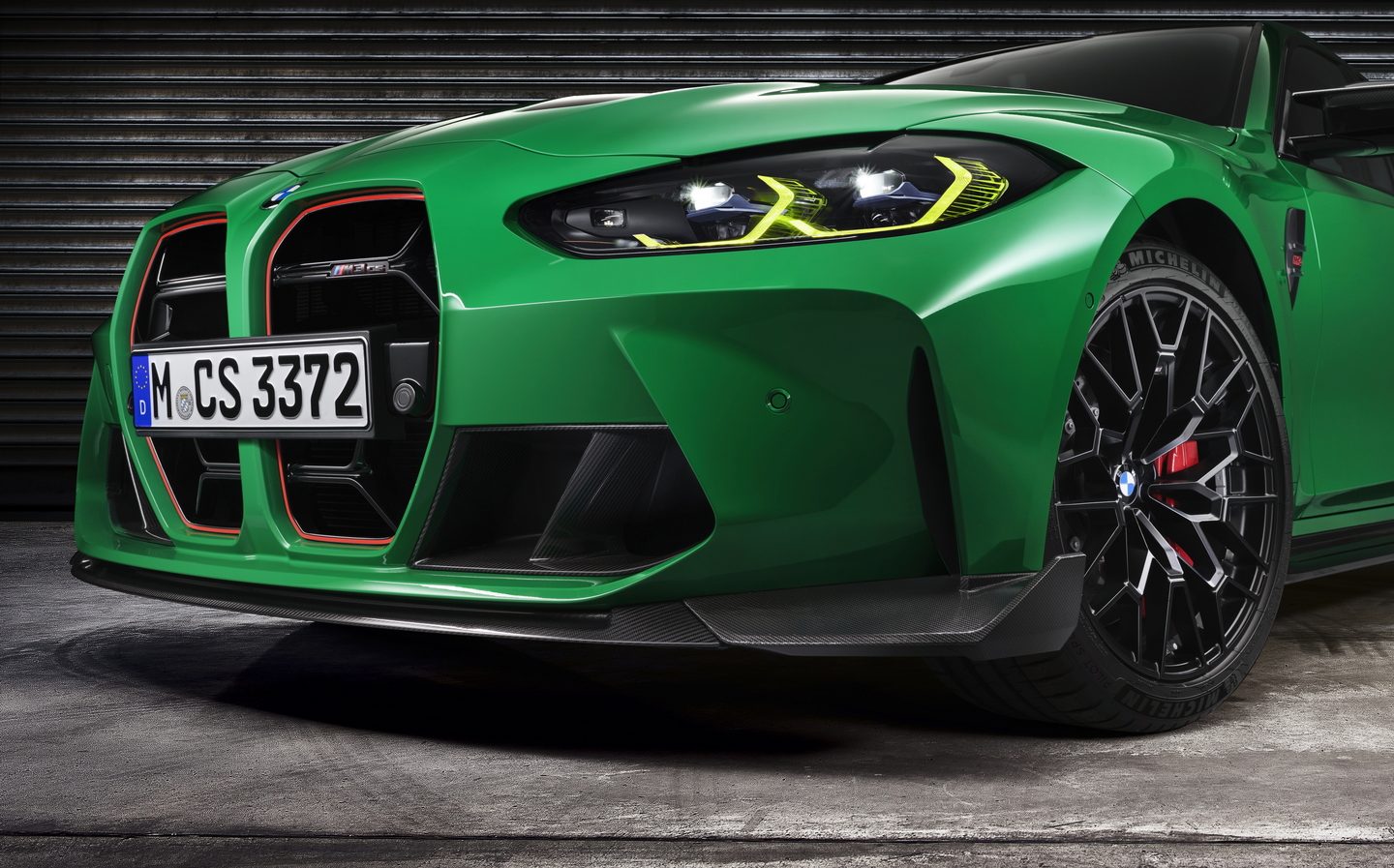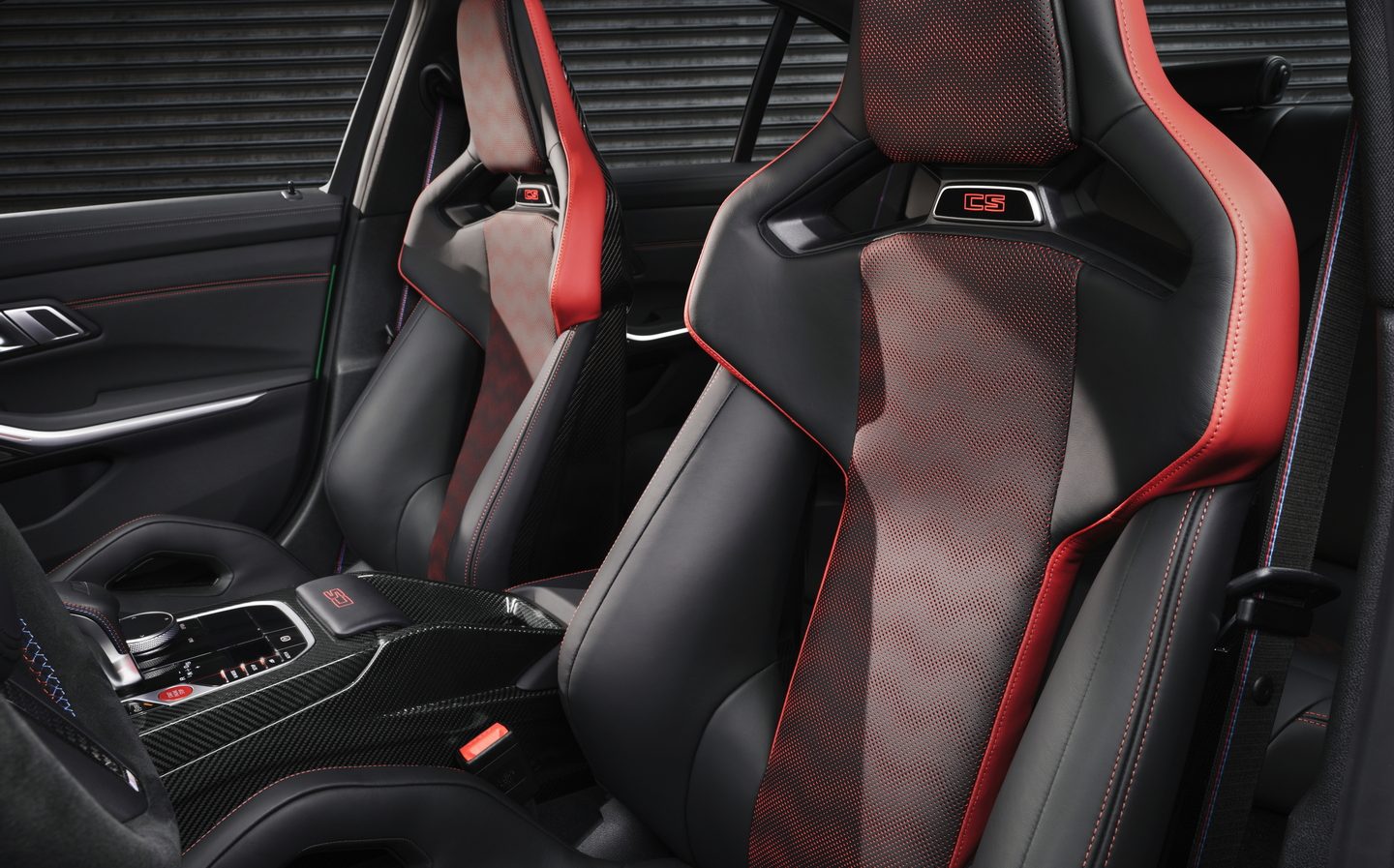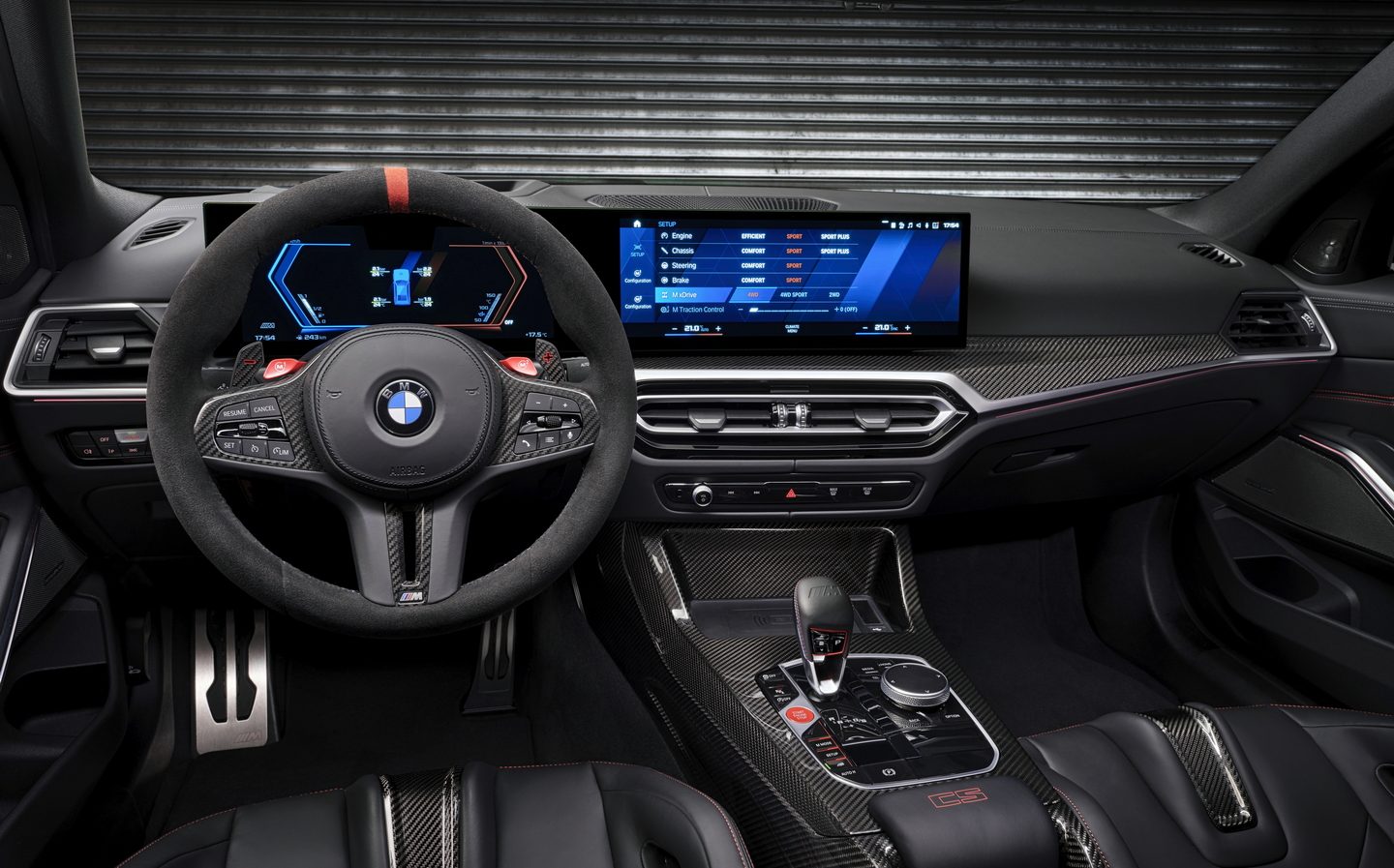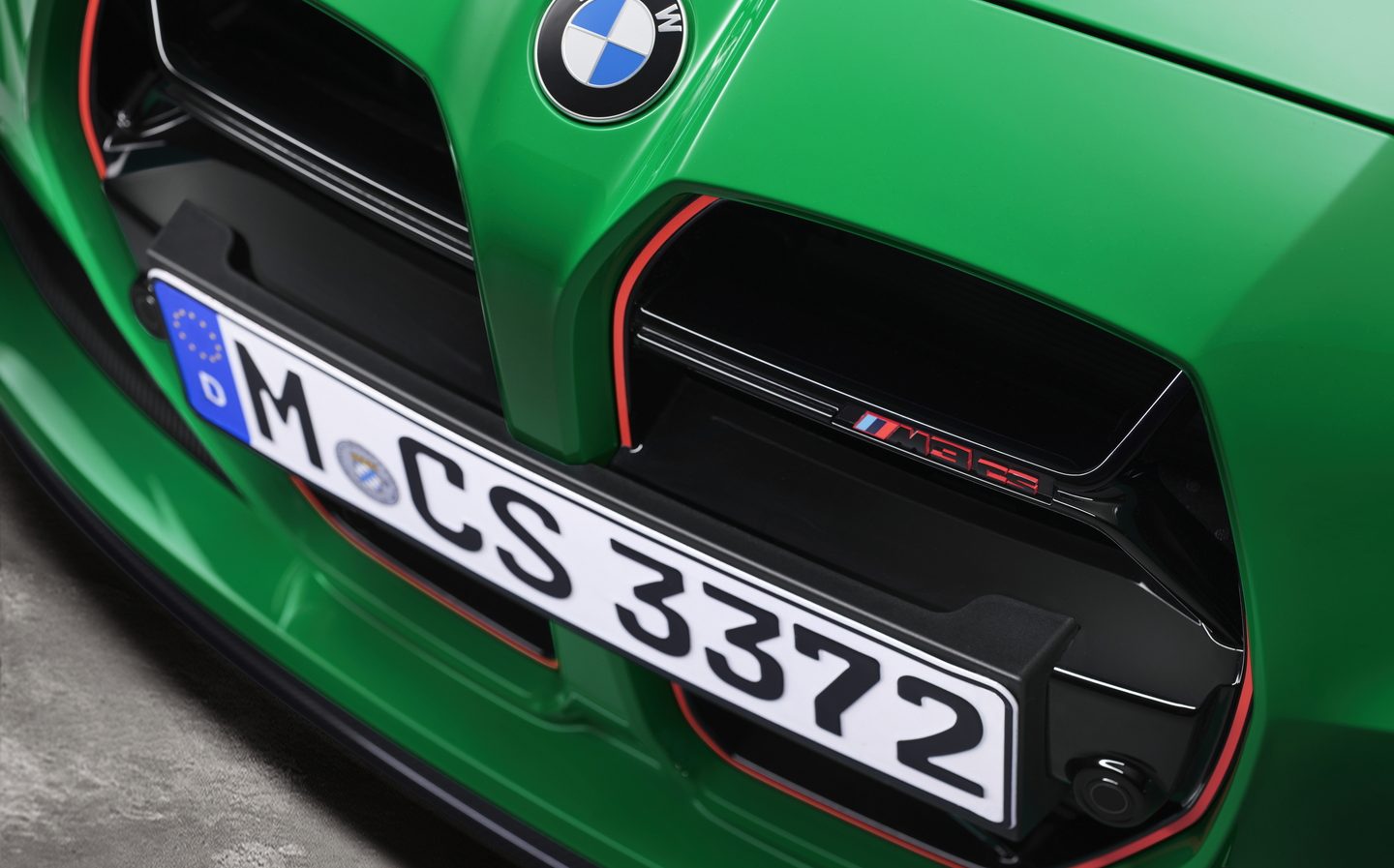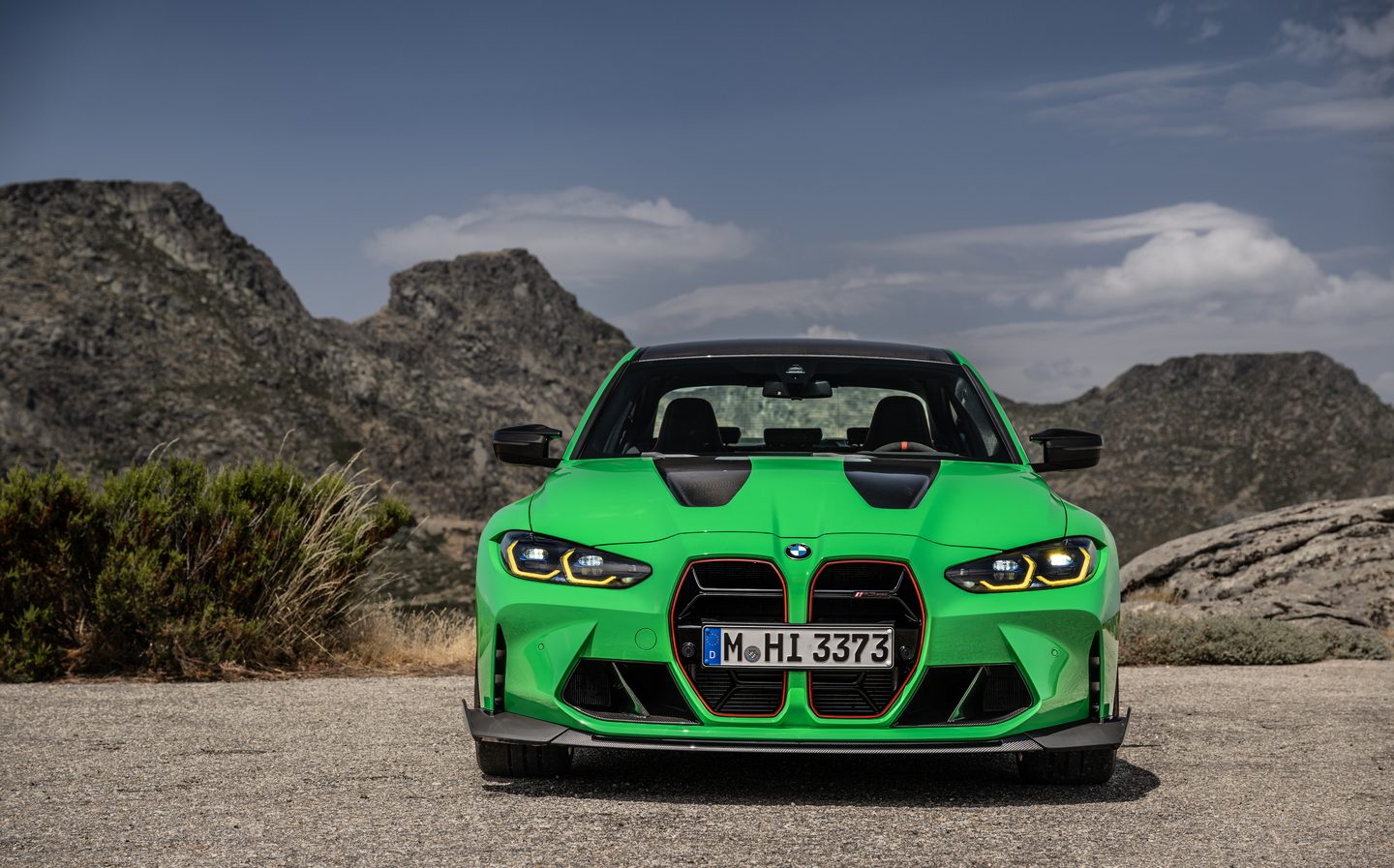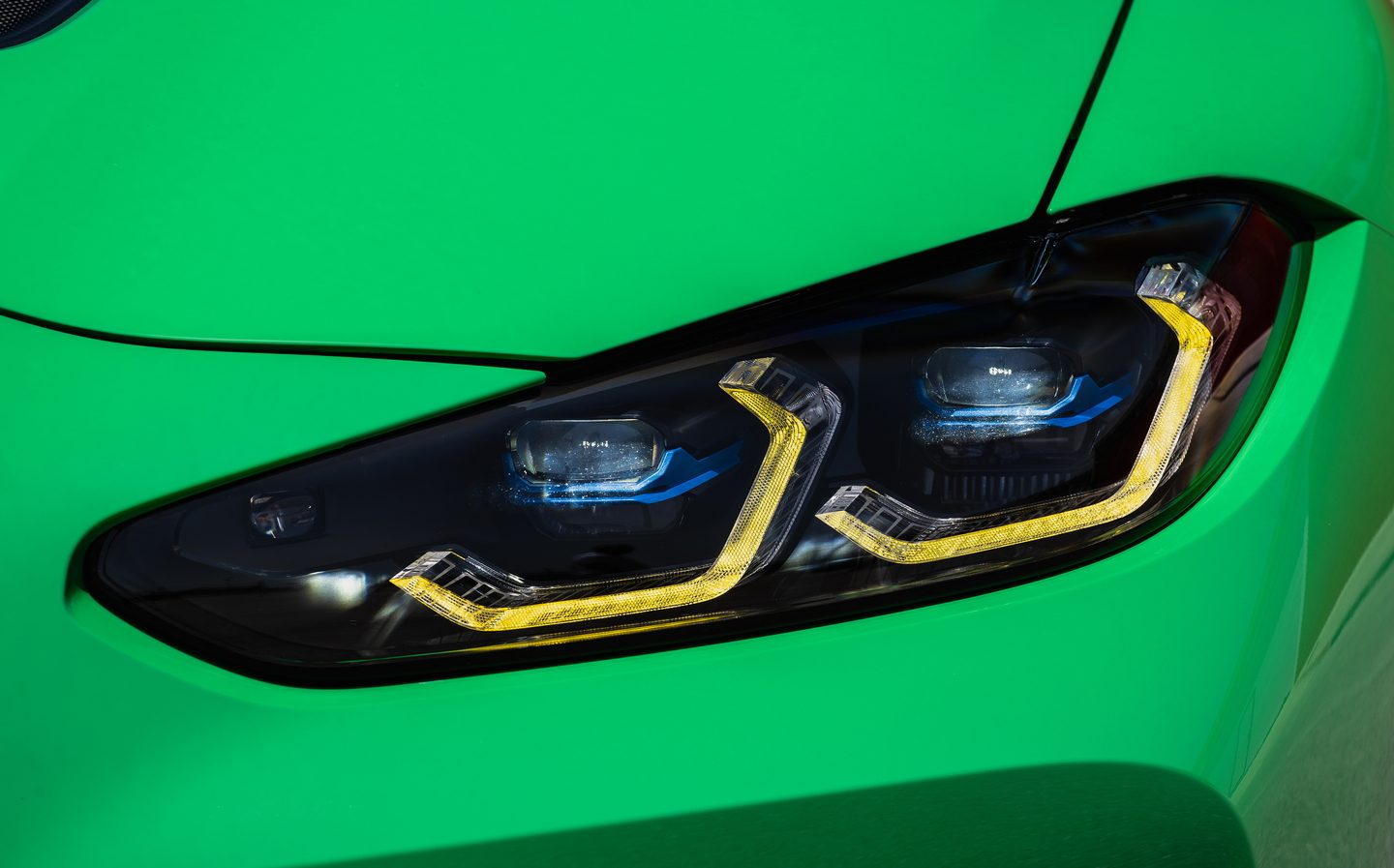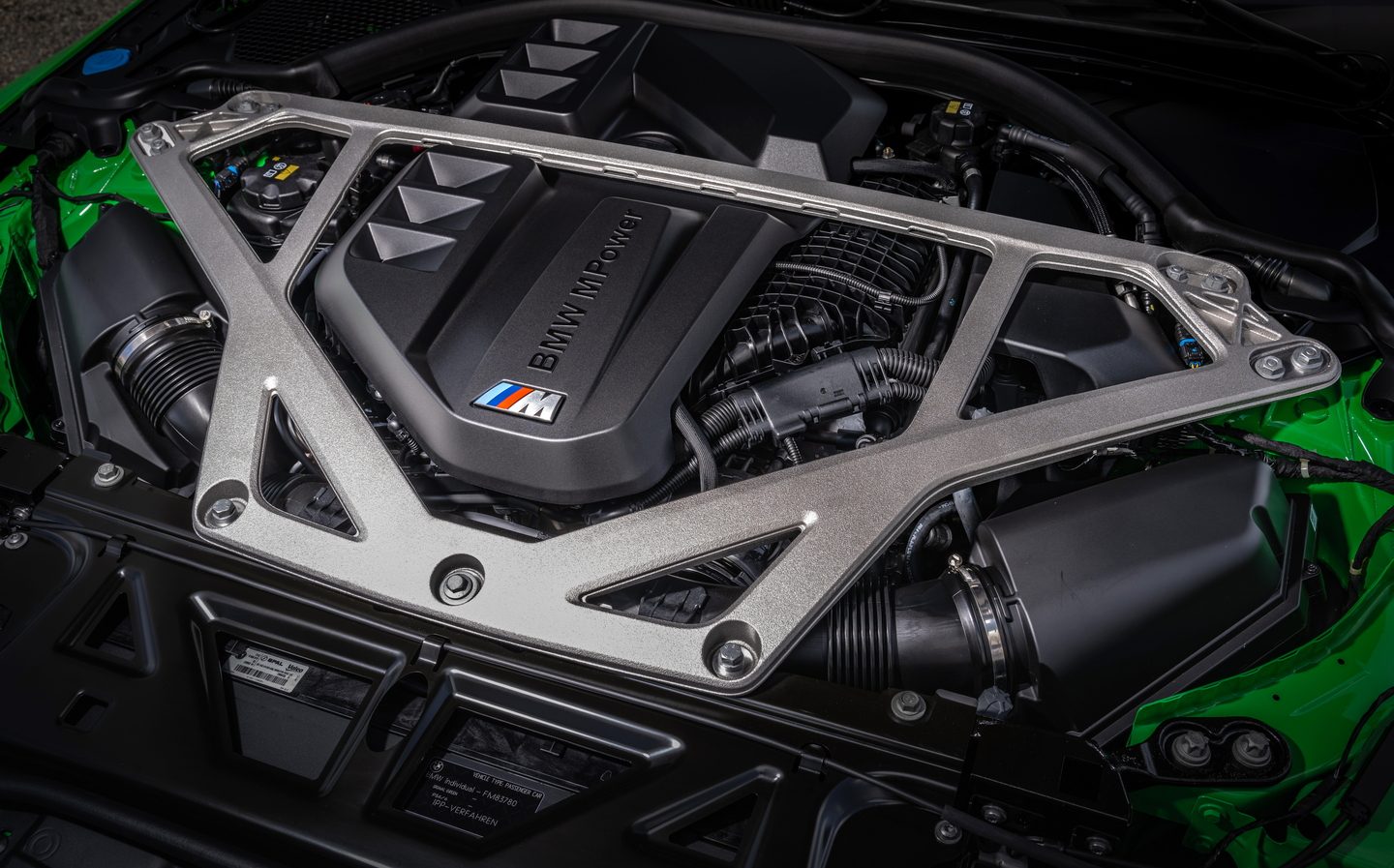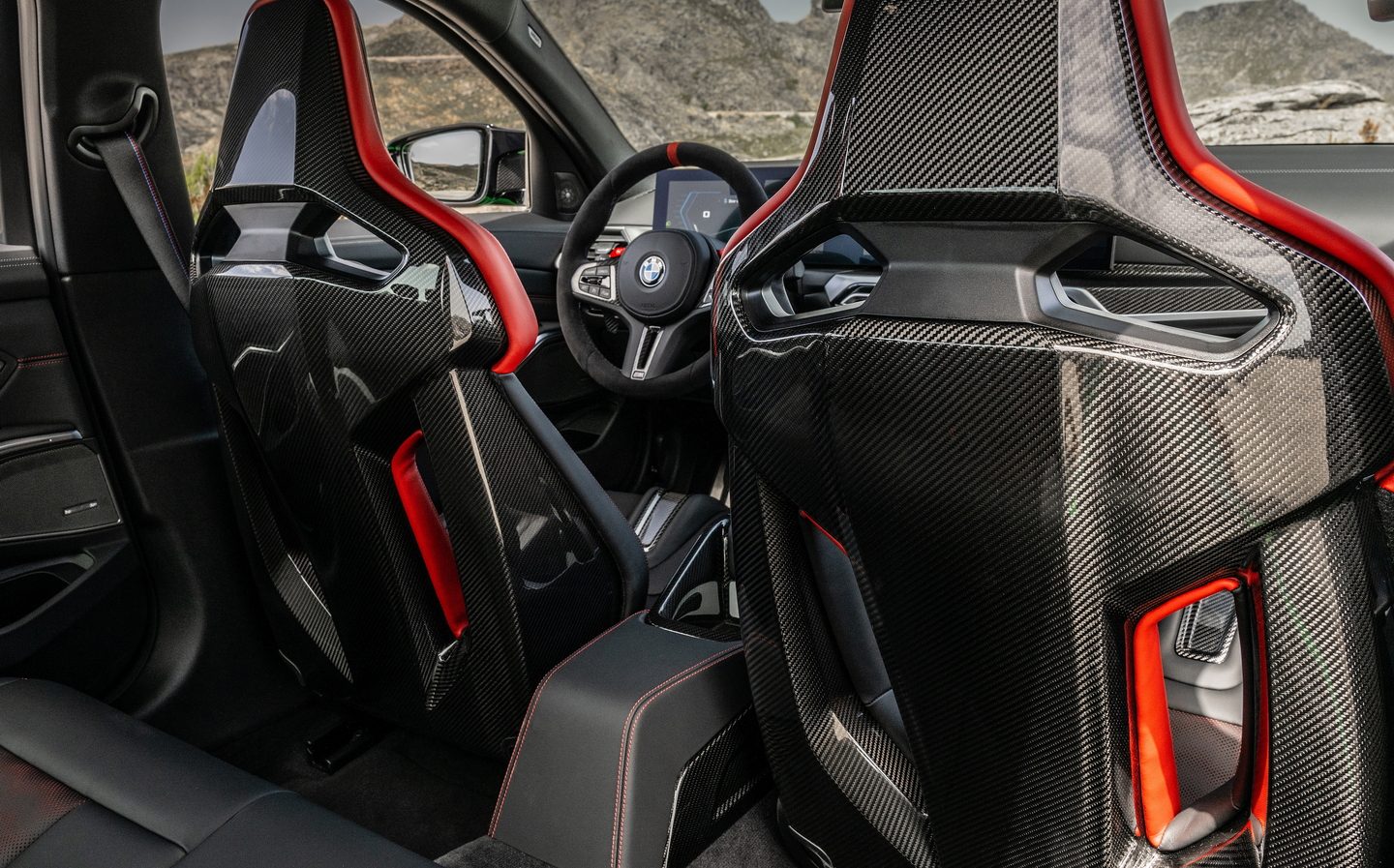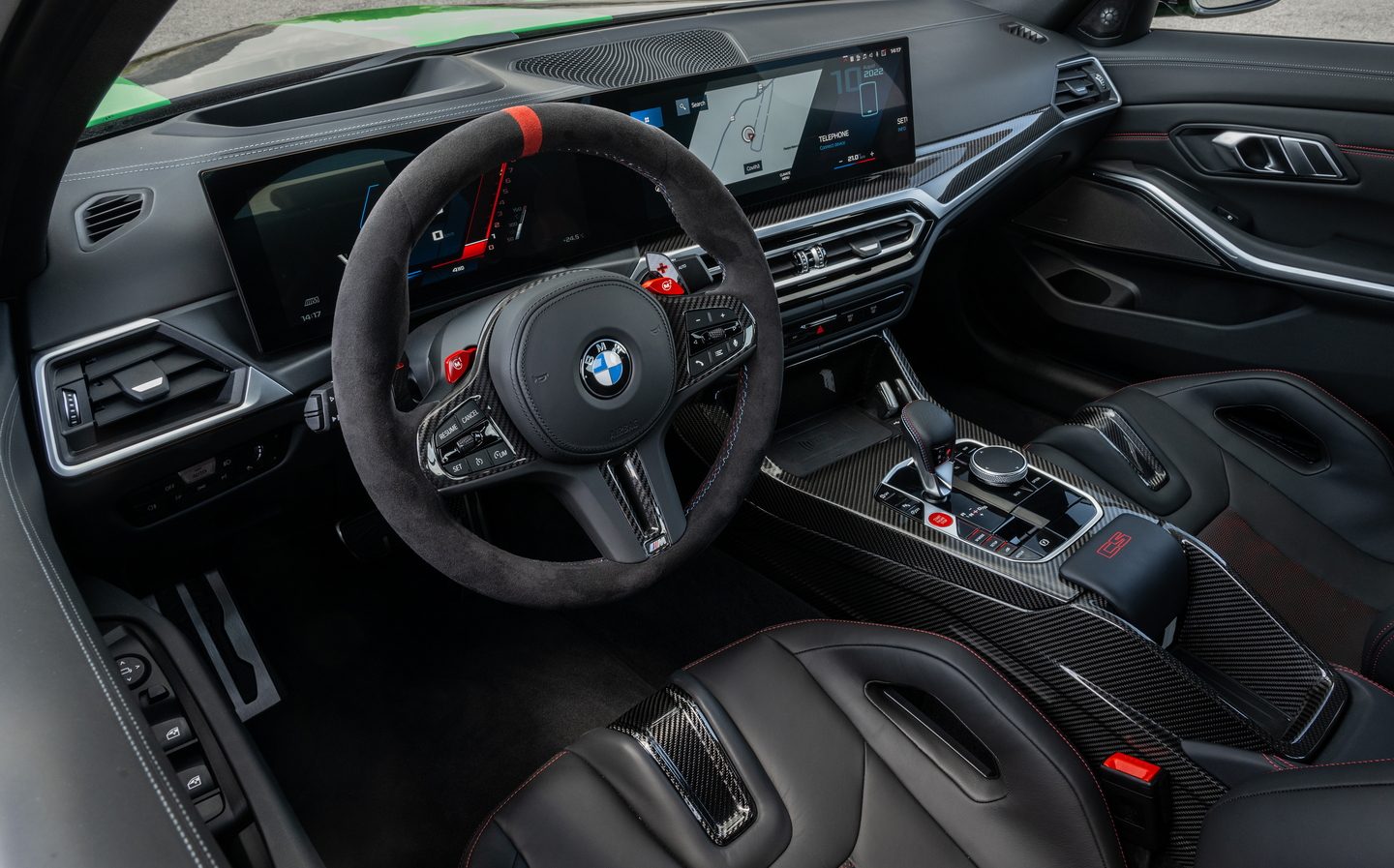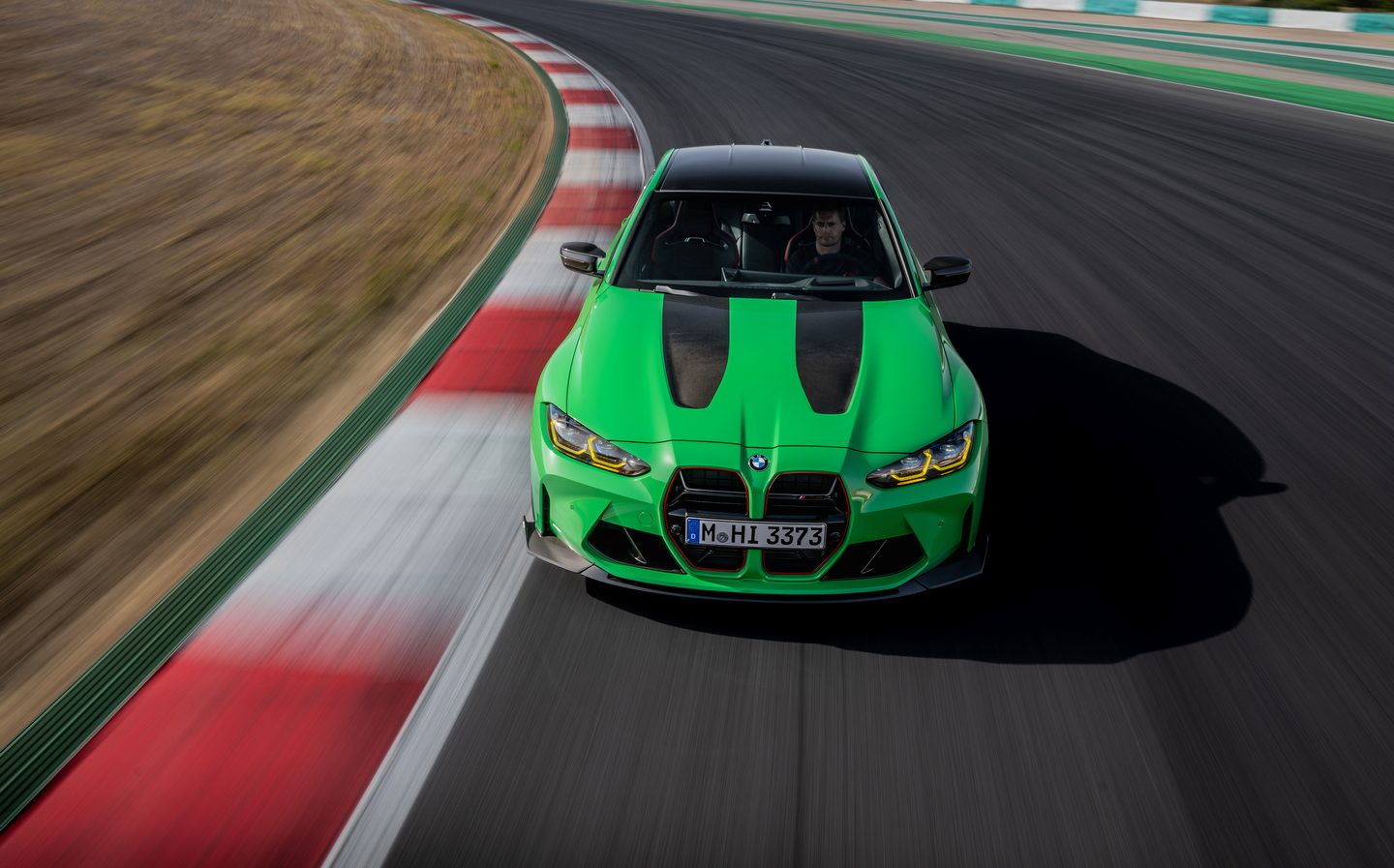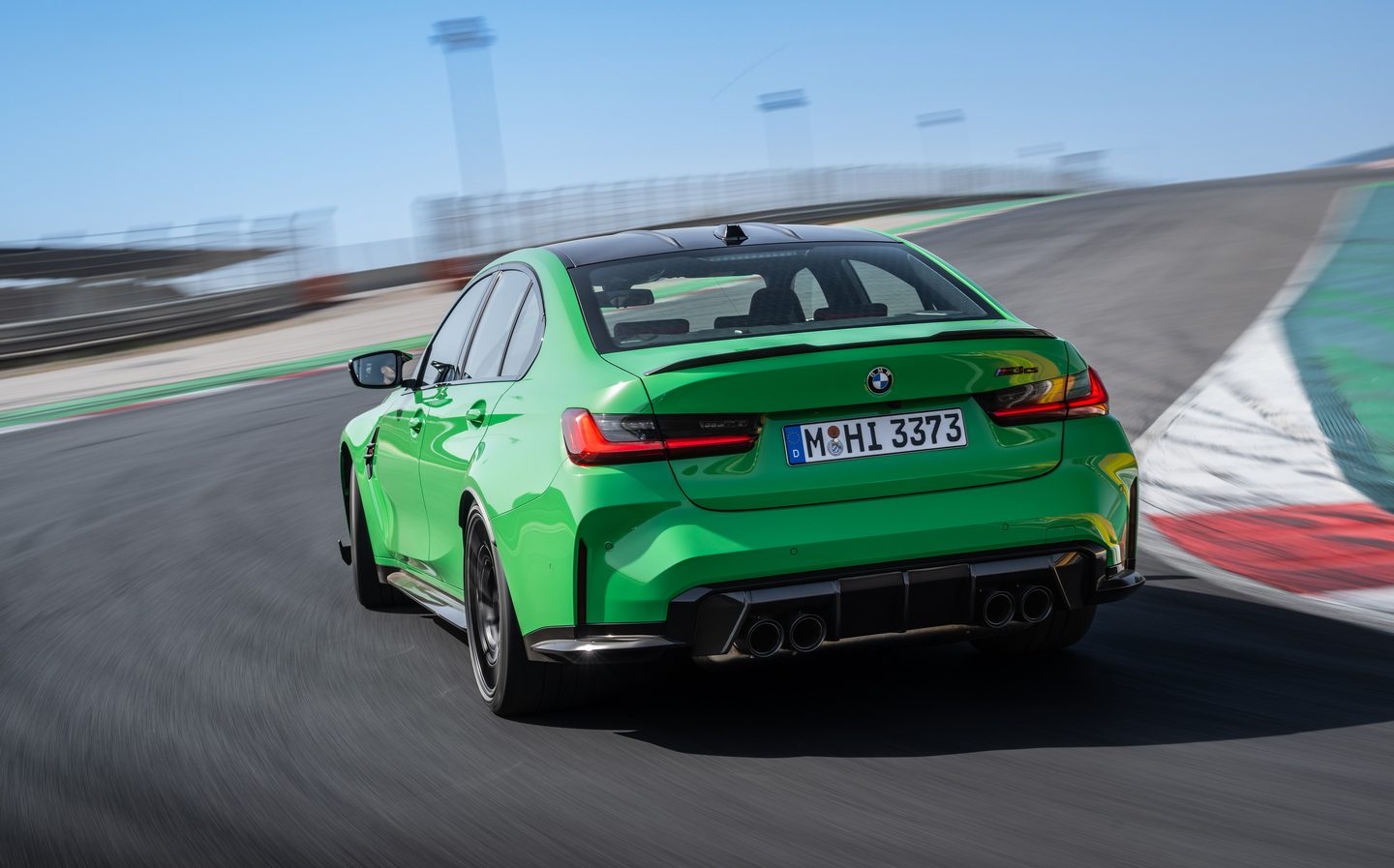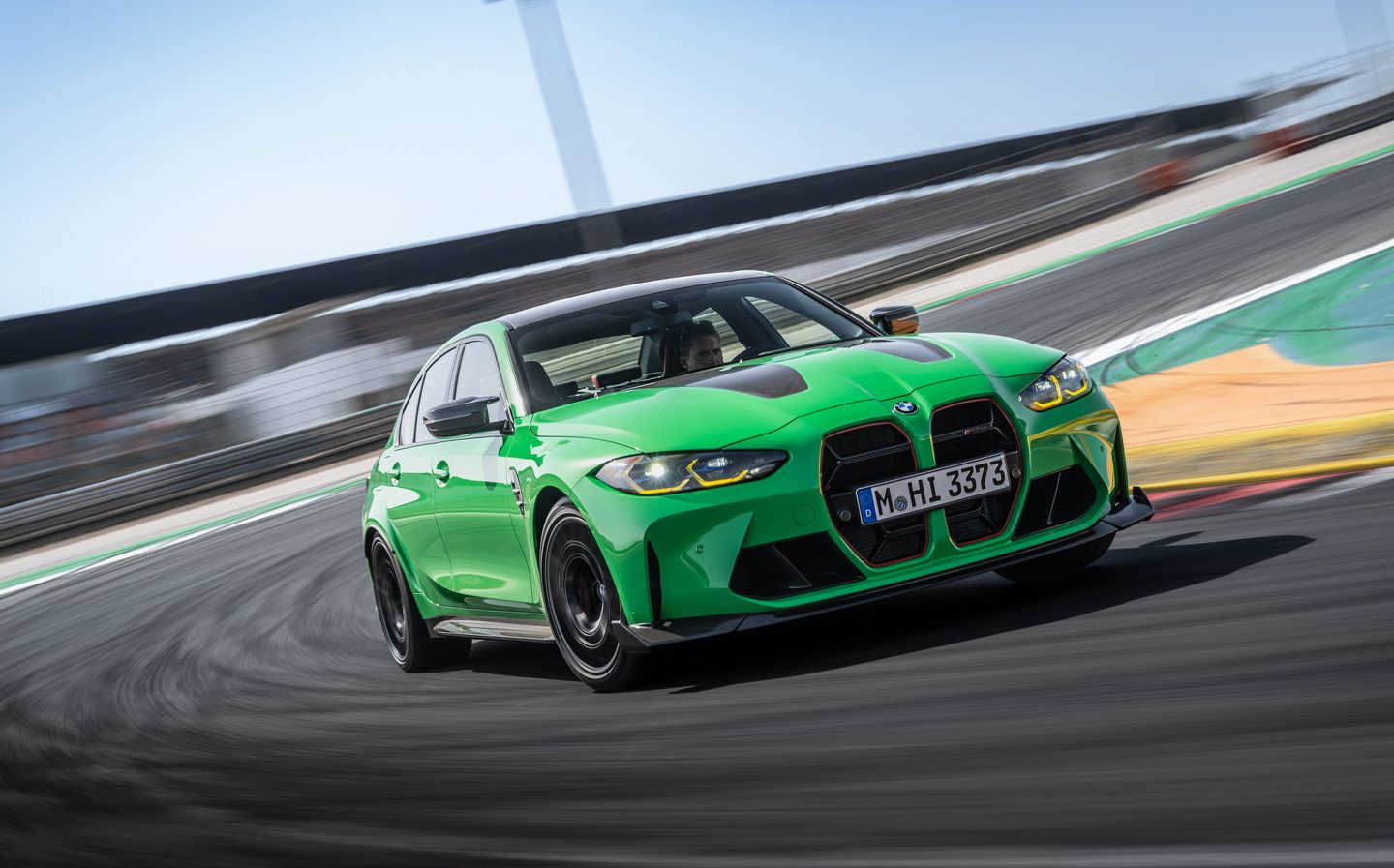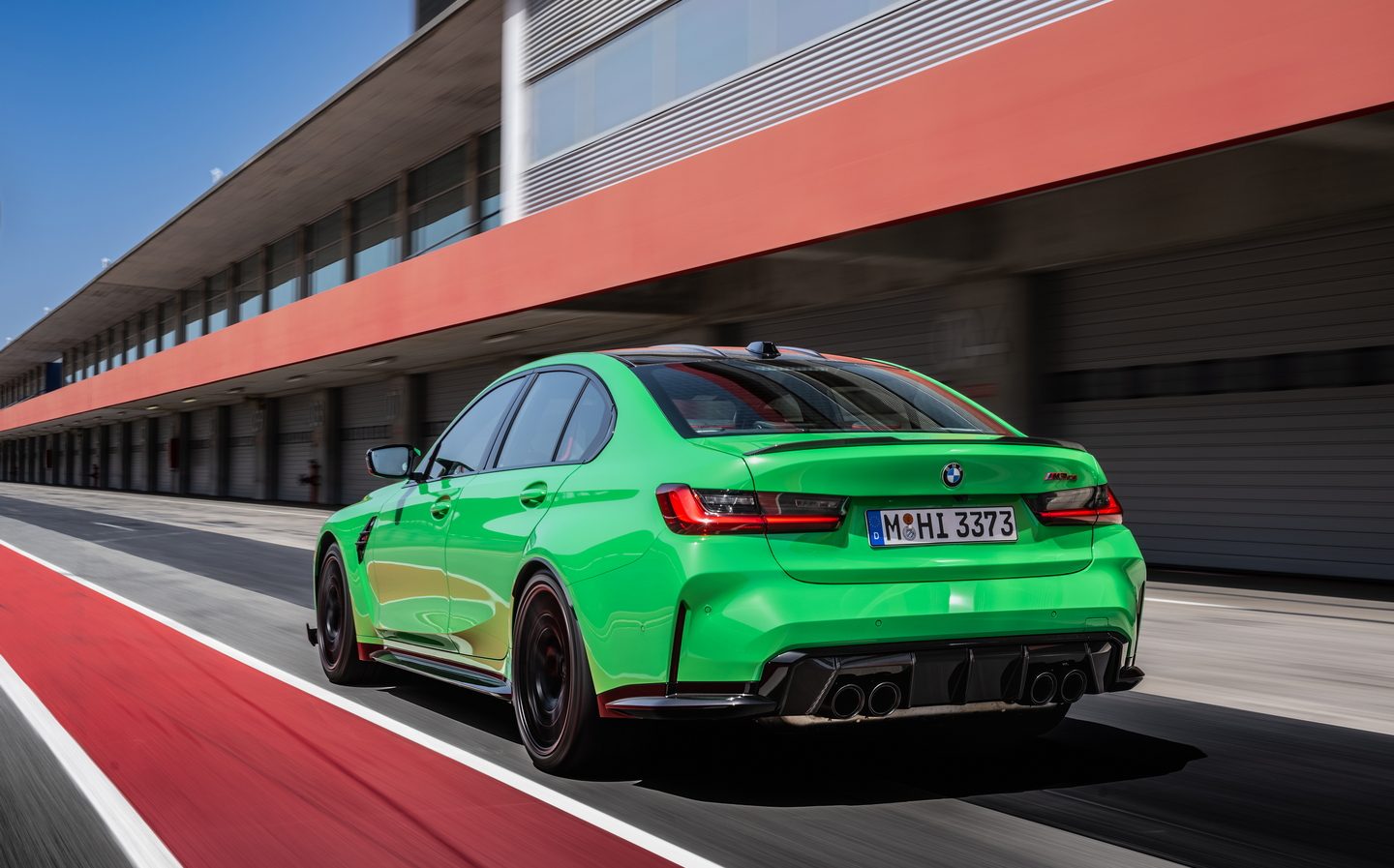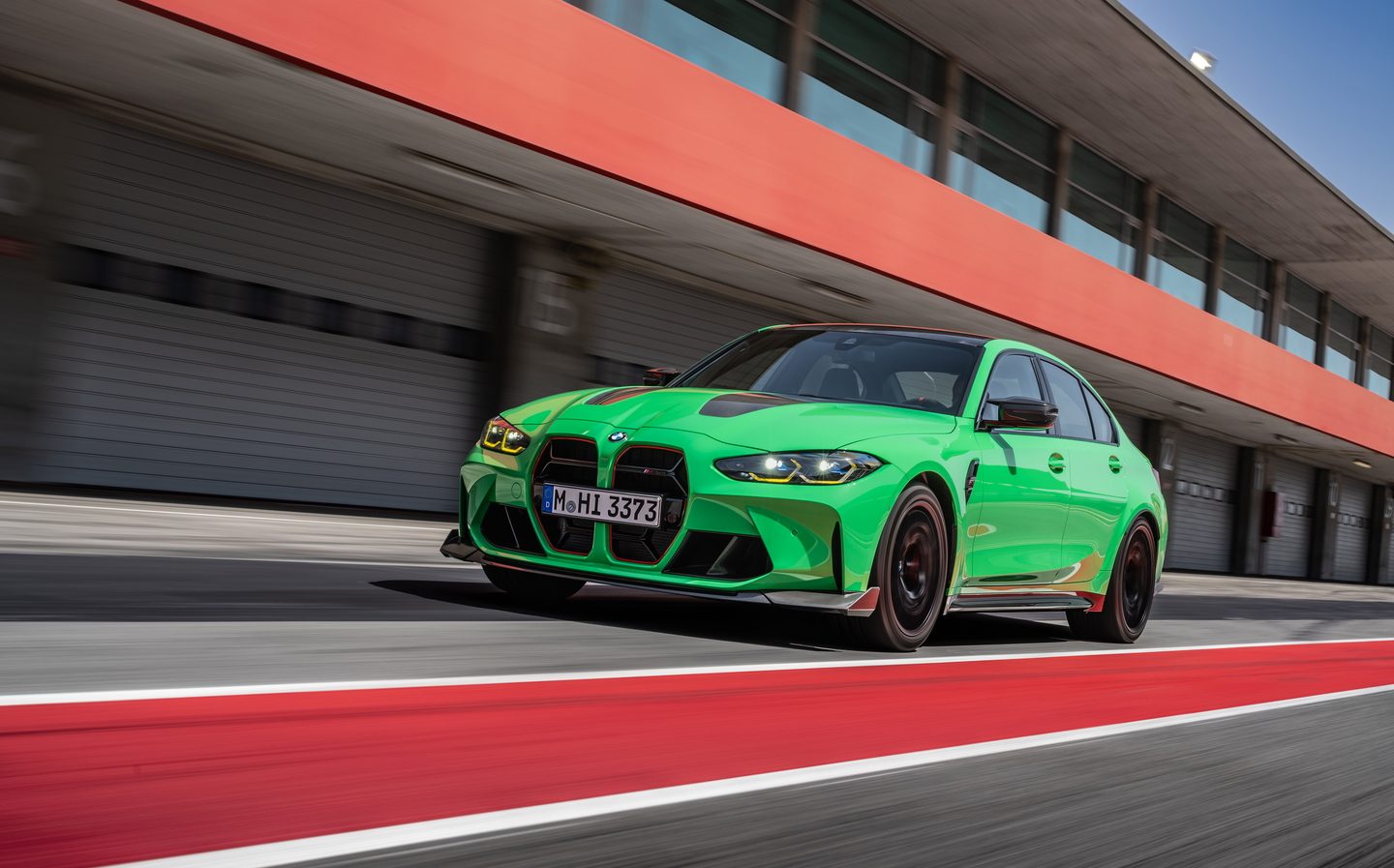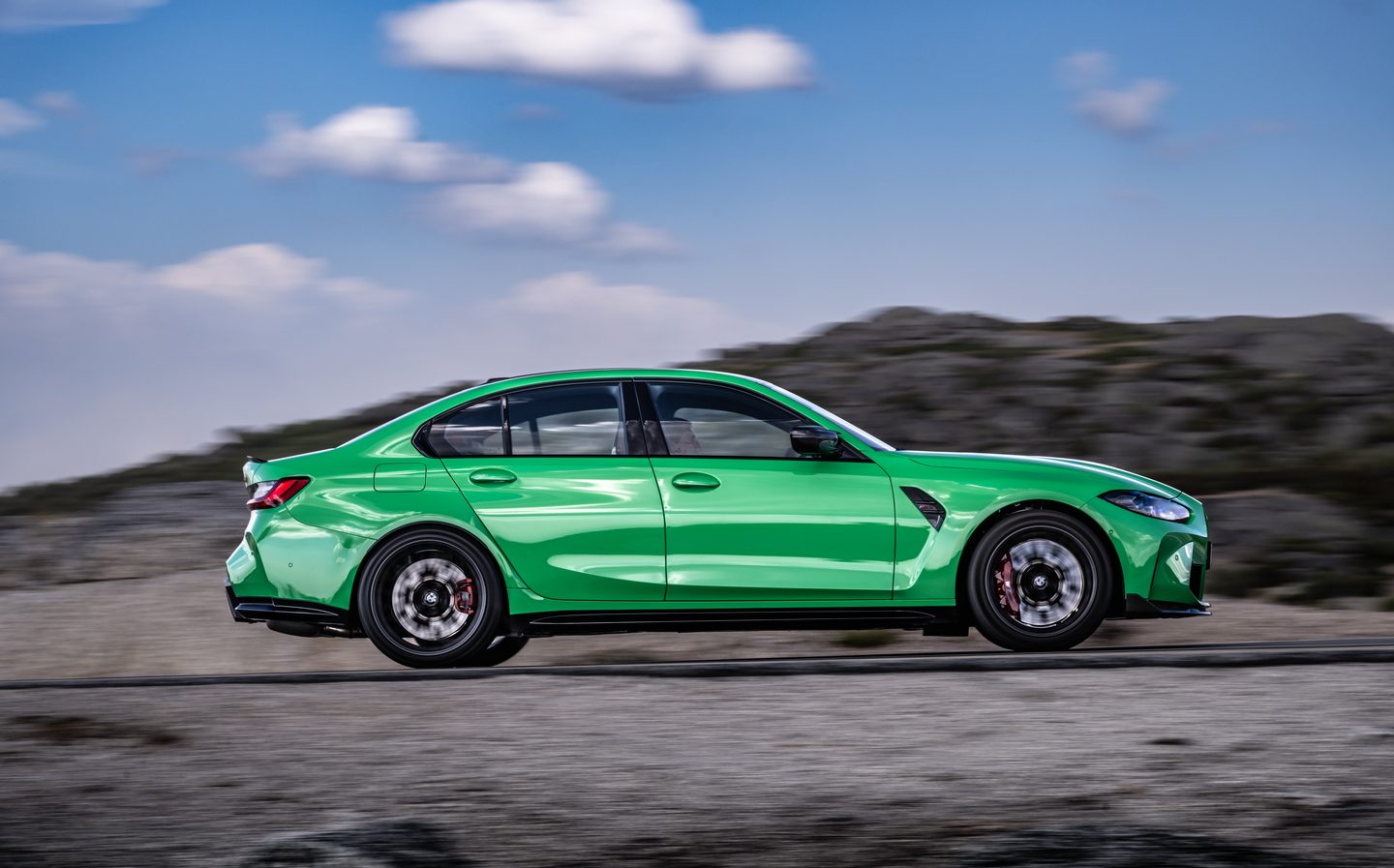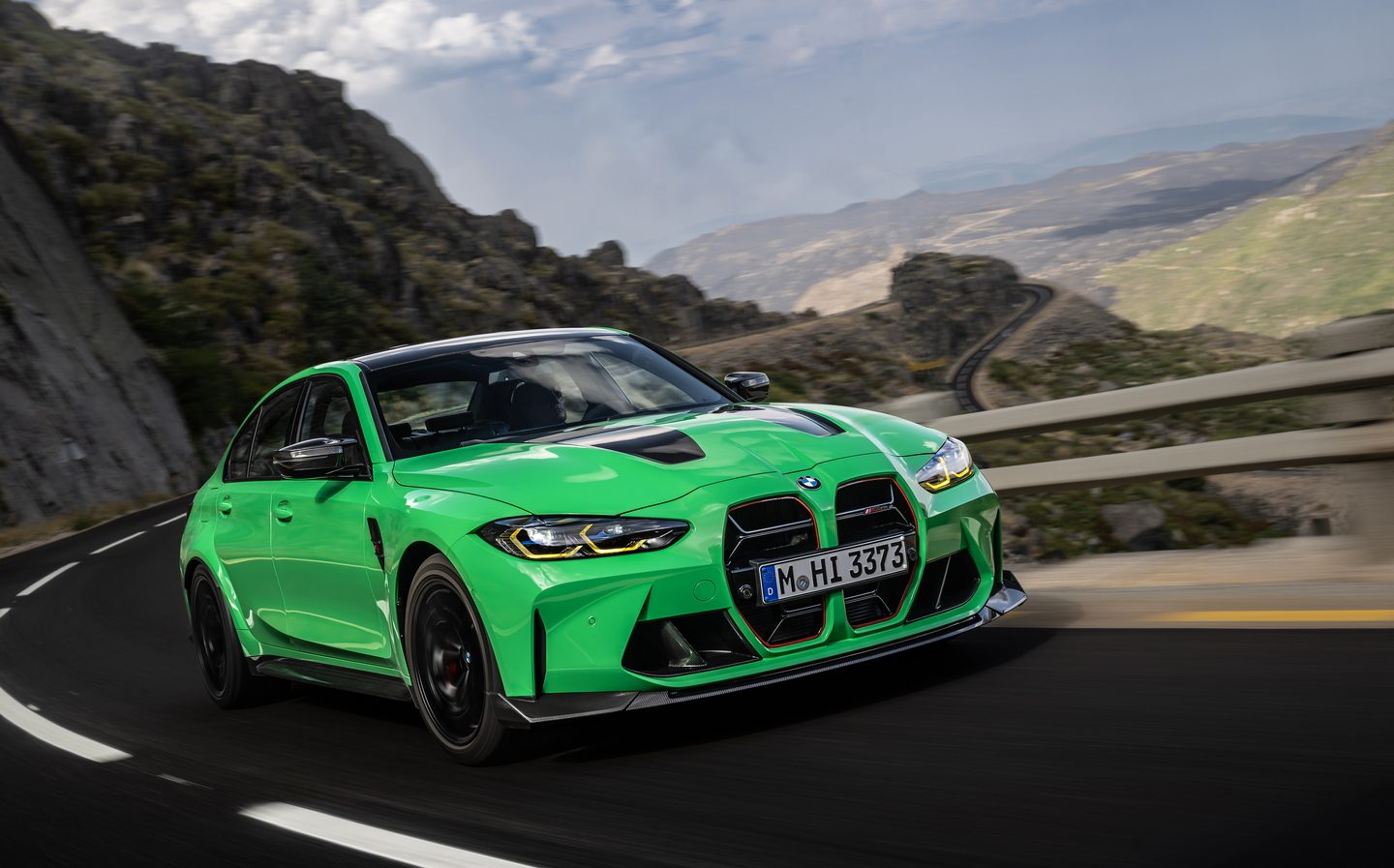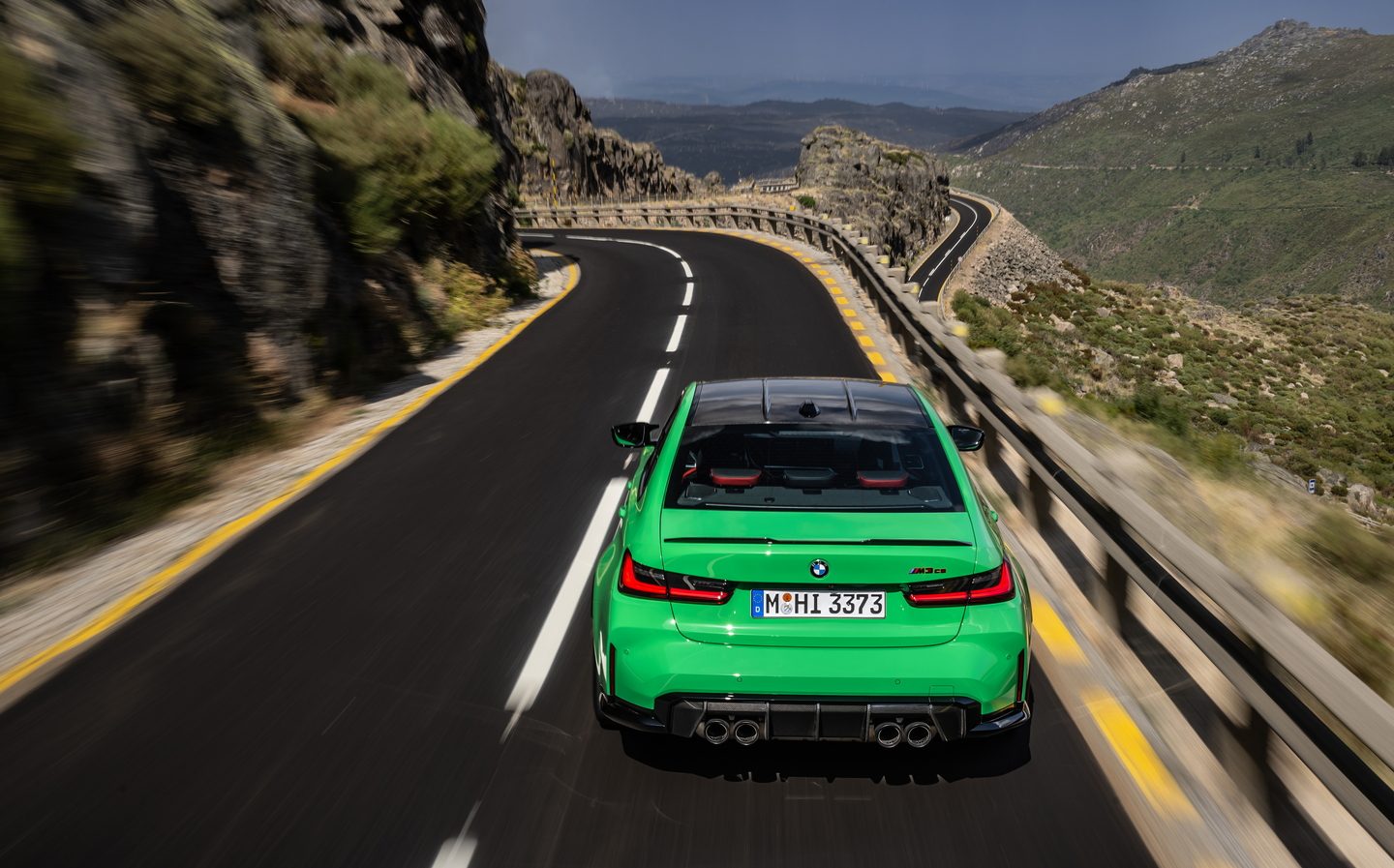BMW unveils M3 CS with 542bhp, carbon galore and a taste for the track
Still no dignified way to get out of those bucket seats
BMW has unveiled the M3 CS, the new range-topper of the M3 line-up, which, with 542bhp on tap, is the most powerful version of the M3 to date.
Though perhaps not quite as hardcore as its coupé equivalent, the M4 CSL, with its free-revving twin-turbocharged 3-litre straight six engine, extensive use of carbon fibre throughout and lightweight bucket seats, the M3 CS is still very much a car designed with track driving in mind, even if BMW describes it as “perfectly suited for everyday use.”
The CS’s engine has been tuned to give an extra 39bhp above and beyond the power output of the current top of the M3 tree, the M3 Competition, and that extra power largely comes as a result of upping the maximum boost pressure in both turbos as well a few small tweaks to the computer system governing the engine.
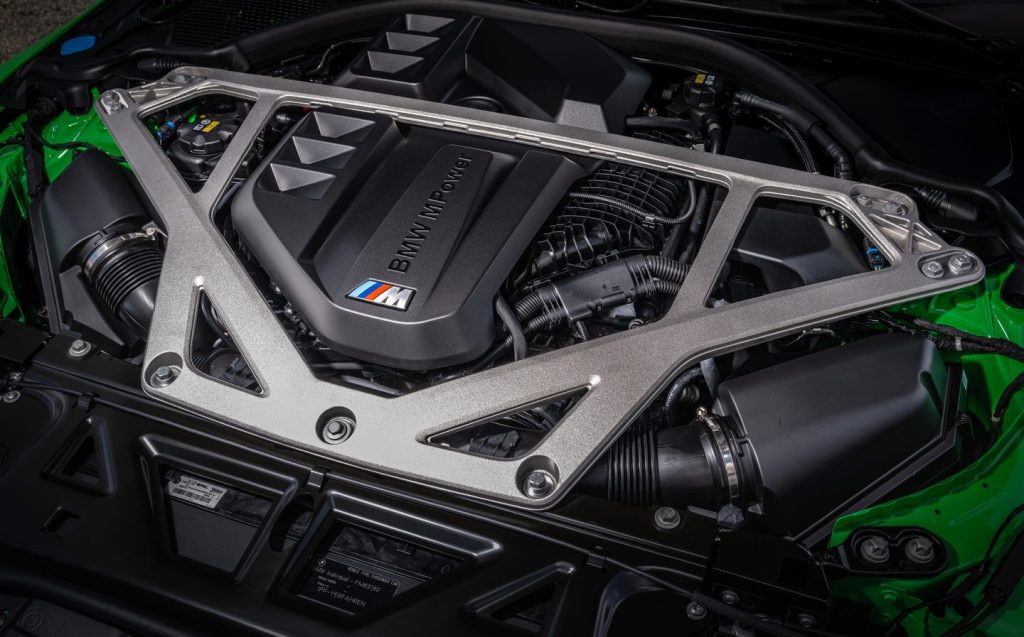
Peak torque of 479lb ft is unchanged from the Competition model, produced between 2,750- and 5,950rpm, with the engine breathing that bit more easily (and loudly) thanks to a dual branch exhaust with electrically-controlled flaps and a titanium silencer at the rear (which reduces the overall weight of the exhaust system by 4kg).
Power is sent to all four wheels through an eight-speed Steptronic transmission that can either be used as a full automatic or operated by a pair of paddles behind the steering wheel; the response characteristics of the gearbox can be altered depending on the driving scenario by means of a button on the centre console.
Torque delivery in the CS is biased towards the rear wheels, as in the M3 Competition, and drivers can even switch off the all-wheel-drive system entirely, temporarily making the CS exclusively rear-drive and a lot more tail-happy and drift-prone should the occasion call for it.
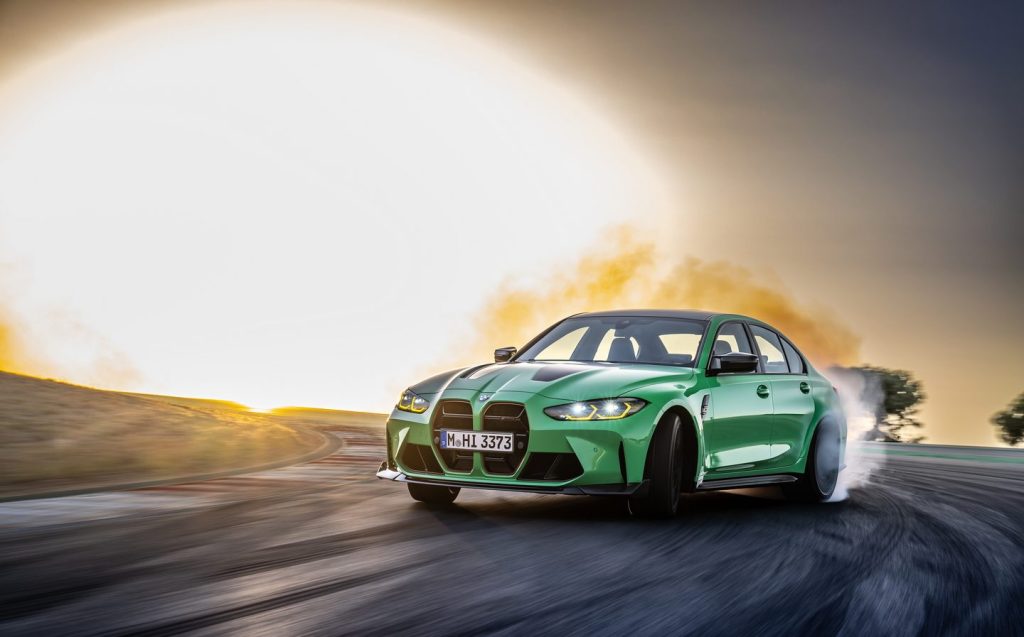
Beyond the powertrain changes, the M3 CS has gone on a bit of a diet compared to the Competition, with a carbon-fibre roof and panels and aerodynamic aids — the bonnet, front splitter, air intakes, door mirror caps, rear diffuser and spoiler, for instance — finished in lightweight carbon-fibre reinforced plastic (CFRP).
That same approach has been carried through to the interior, with the centre console, shift paddles and interior trim strips all hewn from CFRP and M Carbon bucket seats fitted as standard.
Despite being electrically-adjusted, heated and clad in leather, thanks to their CFRP structure and cut-outs, the bucket seats are especially light, and between the seats, the extensive use of CFRP throughout and the titanium exhaust silencer the CS manages to save 20kg on the M3 Competition.

Styling-wise, the CS looks quite a bit more purposeful and aggressive than the Competition with its frameless kidney grille flanked by a set of BMW Laserlight headlamps that illuminate yellow in a look reminiscent of the company’s successful GT racing cars.
The visual impact of all that carbon fibre is heightened, BMW says, when the CS is optioned in a new colour, Frozen Solid White, which makes the lightweight parts stand out in contrast to the main body.
As well as the power increase, other work has taken place under the skin to make the CS more adept when it comes to circuit and fast road use.
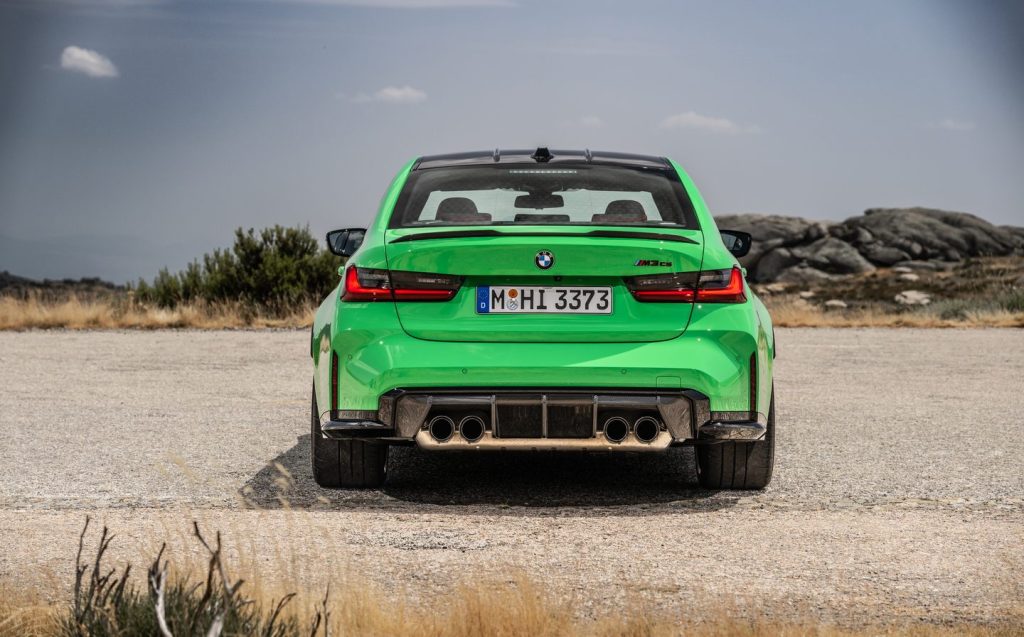
The chassis set-up has been tuned to match the new performance characteristics of the model with bespoke axle kinematics, steering and wheel camber settings, dampers, auxiliary springs and anti-roll bars.
Carbon-ceramic brakes (with red or gold callipers) are an optional extra above the hefty standard set-up, while track tyres — measuring 275/35 ZR19 at the front and 285/30 ZR20 at the rear — are included at no extra cost.
Inside, beyond the notable inclusion of the carbon bucket seats, the CS gets the slick Curved Display dashboard set-up seen in several other BMW models, with a 12.3in driver’s instrument cluster and a 14.9in central infotainment screen melded together into one continuous unit tilted ergonomically towards the driver.
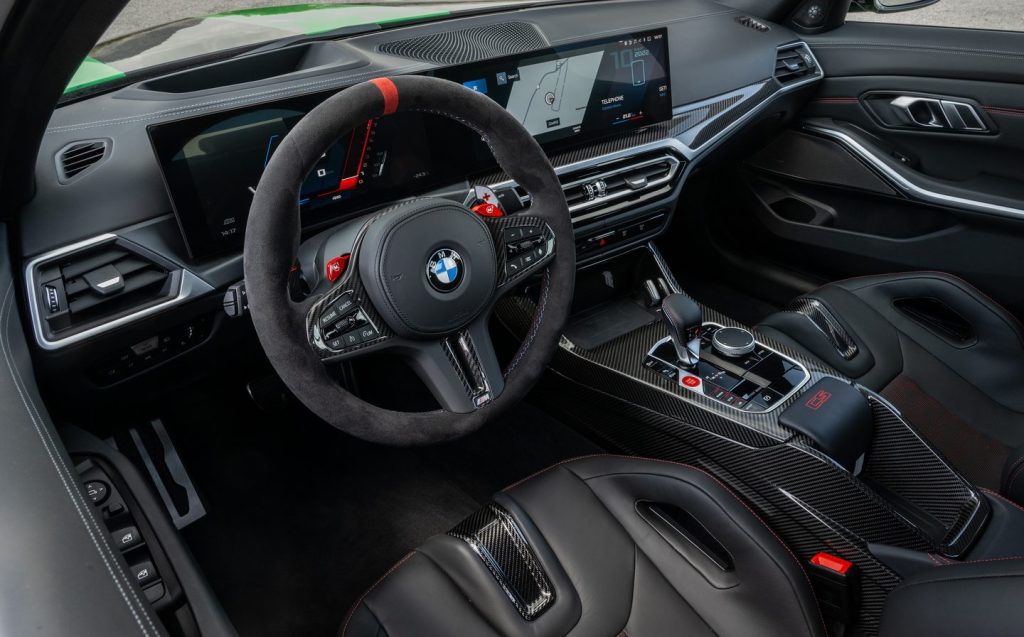
Rather than having to delve through menus to alter the driving characteristics of the car, a “Setup” button on the centre console allows the driver direct access to change the settings of the engine, chassis, steering, braking and all-wheel-drive system.
Another standard feature that’s also geared towards track use is the lap timer and drift analyser functions accessible through the central touchscreen.
The BMW M3 CS is slated for launch in March, with UK pricing starting from (deep breath) £115,990.
Related articles
- After reading about the new BMW M3 CS, you might be interested to see our review of a prototype of the 2023 BMW XM
- Refreshed BMW X7 revealed with updated styling, revamped interior and mild-hybrid assistance
- Or, check out the best luxury cars to buy in 2022
Latest articles
- Seven great automotive events to visit this summer, from F1 to art and champagne
- Watch new Porsche 911 GT3 smash Nürburgring record for manual cars
- Skoda Elroq 2025 review: Czech carmaker can’t seem to miss with its electric family cars
- Five best electric cars to buy in 2025
- Should I buy a diesel car in 2025?
- F1 2025 calendar and race reports: The new Formula One season as it happens
- Zeekr 7X AWD 2025 review: A fast, spacious and high tech premium SUV — but someone call the chassis chief
- Denza Z9GT 2025 review: Flawed but sleek 1,062bhp shooting brake from BYD’s luxury arm
- Extended test: 2024 Renault Scenic E-Tech review


